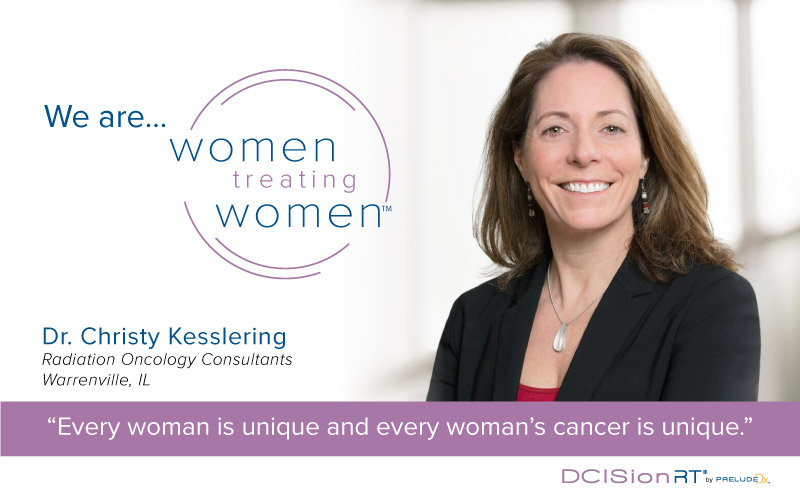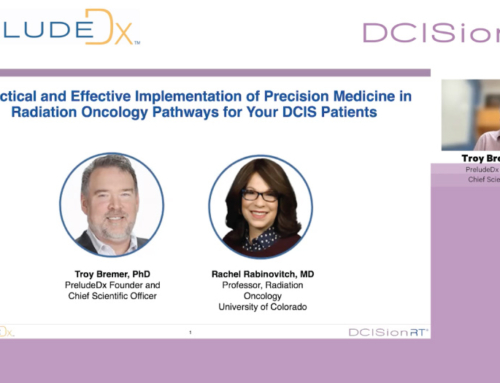For Dr. Christy Kesslering, breast cancer specialist with Radiation Oncology Consultants and seeing patients in Warrenville, Illinois, flipping a coin when it comes to administering radiation to DCIS patients simply isn’t going to cut it from now on.
“Out of the average 100 DCIS patients, only a small subset will benefit from treatment,” she says. “That means many women are getting radiation for no benefit.”
With over 25 years of experience and a passion for treating women with breast cancer, the Loyola University graduate says the pioneering of precision genomic tests has placed radiation oncologists in the exact same position medical oncologists found themselves nearly 15 years ago.
“When genomic tests first came on the market in the early 2000’s, medical oncologists were incredibly anxious about omitting chemotherapy. The assay’s challenged protocol and questioned traditional clinical and pathologic features as the sole prognosticators,” she says. “But with enough experience, Medical Oncologists frequently use genomic test and they’re quite comfortable doing so as they know it’s what’s best for the patient.”
With the arrival of DCISionRT, radiation oncologists now have the opportunity and responsibility to customize treatment for their DCIS patients using their unique tumor biology, and finally leave educated guesses regarding each patient’s need– or lack thereof– for radiation behind for good.
“We are wrong 50% of the time we predict a patient to be at low risk for recurrence and wrong 30% of the time we predict a patient to be at high risk when we rely on clinical and pathologic info alone,” she says. “Until now, we didn’t have a good test to differentiate between who would actually benefit from radiation. The Oncotype DCIS test attempted to do this, but it was really no better than what we were already guessing clinically.”
Access to precision testing like DCISionRT is particularly important for young patients. Whereas in the past, younger women might have received unnecessary radiation treatment in a hyper-cautious effort to protect the many years still in front of them, according to Dr. Kesslering, their age is all the more reason to abstain from unnecessary treatment.
Although the majority of women who undergo radiation will experience limited side effects, all treatment inherently comes with risks.
“In randomized trials, probably 25% of patients have what’s considered moderate to significant changes in the breast,” she explains. These side effects can include fibrosis, volume loss, chest wall discomfort and more. “But we just don’t have a crystal ball to see who those less-than-ideal outcomes will be in. For the young patient, we’ve now potentially committed her for the rest of her life to endure those things. We should never be radiating just because we can.”
“We now have a great tool to help us help patients make personalized decisions that fit their wants and needs.”
Dr. Kesslering is eagerly awaiting the development of more genomic and combination type tests similar to DCISionRT for other indications such as invasive, node-positive and post mastectomy settings.






